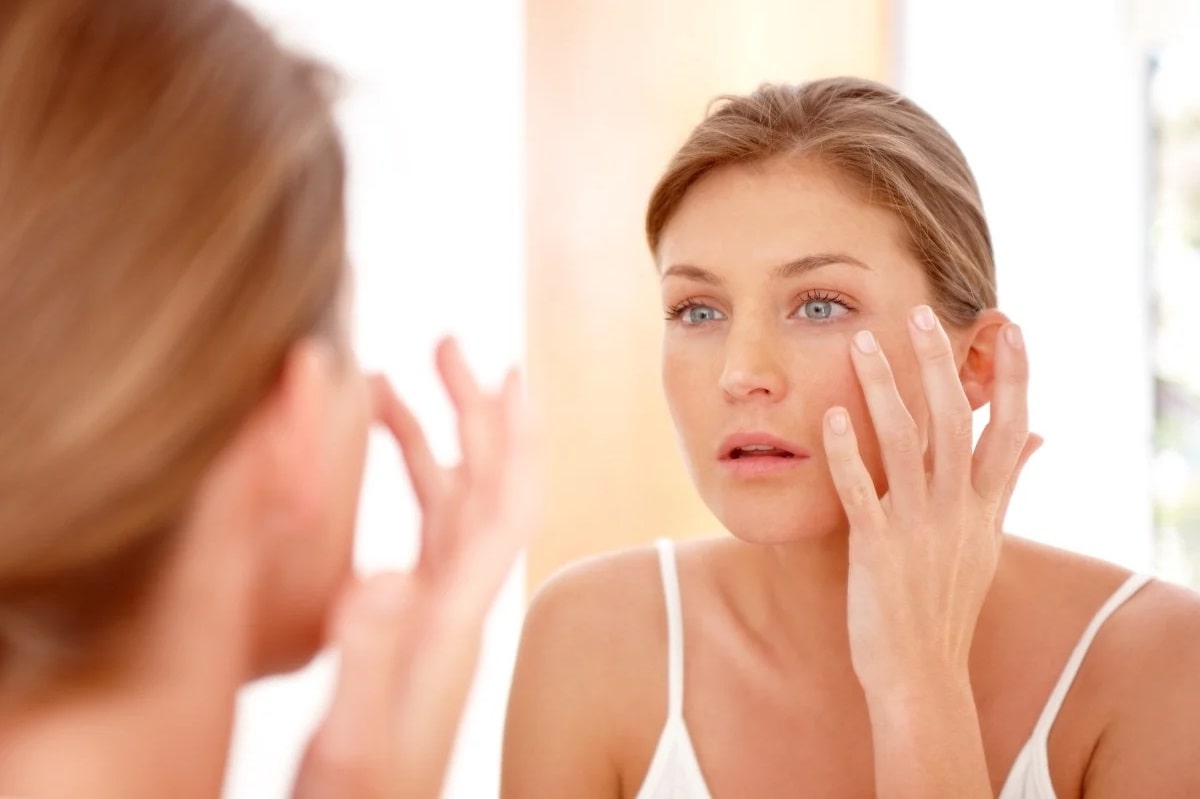Stress affects both mental and physical health and is an inevitable part of everyone’s life. Stress is defined as a mental state of tension brought on by an unpleasant situation. Suppose you are wondering about how to manage tension for healthy skin. In that case, this blog will provide comprehensive guidance about the relationship between stress and skin, and give knowledge and practical tips on how to manage it.
Your skin is one of the most obvious areas where stress badly affects you, from acne to blisters, breakouts, redness, inflammation, etc. You can suffer from severe skin conditions. Each of us experiences stressful times, but how we handle tension greatly impacts our overall well-being.
Let’s discover how stress impacts your skin. Learn effective strategies to manage stress for healthier skin. Explore common stress-induced skin conditions, symptoms, diseases, and practical tips for stress management of healthy skin in this highly informative blog.
Relationship Between Stress and Skin
The human body is designed to fight infections naturally. For example, whenever your body or brain is under stress, your adrenal glands release the stress hormone cortisol, which protects you from infections.
A stressful environment results in a break out, resulting in dull, drab looking skin. As a result of the stress receptors in your skin activating, you can experience the following common effects:
Acceleration of the inflammatory response.
Slowed healing of wounds.
Increased production of oil and sebum.
Reduced ability to fight against infections.
Stress and Its Impact On The Skin

Stress isn’t just a mental burden, it can be visible on your skin too. When you encounter a stressful situation, your body releases a surge of hormones, like cortisol and adrenaline, to prepare for a “fight or flight” response. This hormone surge is essential for survival in an emergency, but it can wreak havoc on your skin if stress becomes chronic.
Stress can weaken the skin’s natural barrier, which can manifest on the skin as rashes, eczema flare-ups, or even worsen existing skin conditions like psoriasis. In essence, chronic stress can take a toll on your skin’s health in numerous ways.
Common stress symptoms on the skin include:
1. Inflammation and Redness
The more stressed one gets the more hormones such as cortisol your body releases. This hormone can trigger inflammation throughout the body, including your skin. This inflammation can show up as redness, swelling, and irritation.

2. Dehydration and dryness
Stress can disrupt the skin’s natural barrier function. This barrier helps retain moisture and keeps out environmental irritants. When compromised because of anxiety or mental tension, the skin loses moisture more easily, leading to dryness, flakiness, and a rough texture.
3. Itchiness
Stress can heighten your skin’s sensitivity. This can make you more prone to itchiness, even without a visible rash. The increased sensitivity and dryness caused by stress can worsen the itchiness.
4. Rashes
Stress can enhance existing skin conditions like eczema and psoriasis. These conditions involve an overactive immune system response, and stress can further trigger this response, leading to flare-ups and rashes.
5. Dullness
Chronic stress can hinder the skin’s natural regeneration process. This means skin cells don’t turn over as quickly, leading to a buildup of dead skin cells on the surface. This accumulation can make your skin look dull, tired, and lacking its natural glow.

6. Stress Spots
One of the most common skin problems is the appearance of stress spots. These are often pimples or acne that appear, usually during or after a stressful period. Stress spots, for instance, are caused by cortisol, which stimulates the oil glands in your skin to produce more oil. This can clog pores and lead to breakouts, especially for those who are prone to acne.
Can Stress Cause Blisters?
Does stress cause blisters? A close relationship has always existed between these two. Blisters caused by stress are common in individuals who already have certain skin issues. Tension can also slow the immune response, making the skin more sensitive to infection and other issues, including blister formation. Dyshidrotic eczema is a form of this, and is characterized by tiny, irritating blisters on the palms, soles of the feet, fingers, and toes, and can even worsen.
Chronic Skin Diseases Due to Stress
Stress doesn’t only increase existing skin conditions but can also contribute to other skin problems. Some of the most common skin diseases and skin conditions because of this are:
Psoriasis is a condition that causes skin cells to increase rapidly and enhance the formation of thick and scaly patches.
Eczema is a condition characterized by red, itchy, and inflamed skin.
Rosacea is an appearance of redness and visible blood vessels in the face with red, pus-filled bumps.
7 Steps to Manage Stress for Healthier Skin

The following steps should be taken for healthier skin:
Choose a healthy lifestyle
Try to eat a balanced and adequate diet, drink sufficient amounts of water, and take care of regular exercise.
Take care of your skin
Use a gentle cleanser, keep your skin hydrated, and use sunscreen with a good rating of SPF daily to protect your skin.

Yoga
Meditation, mindfulness, and deep breathing exercises. Yoga is always helpful for reducing stress and improving skin health. Make sure you walk around the block at least once a day.
Me Time
Take just 10 –15 minutes daily for your hobby or any mental relaxation activity. It may include reading a book, writing a diary, keeping a journal, spending time with family and friends, or having a bath and self-care routine.

Sufficient Sleep
Make time to get a good night’s rest. It’s best to get seven or eight hours each night. A proper sleep schedule is vital for skin healing and reparation.
Consult a Dermatologist
If you experience persistent skin problems, consult a dermatologist for professional advice on how to manage your health under tension.
They can help you determine the underlying cause of your skin problems, which may not always be directly related to stress. Once they understand what’s causing your skin problems, they can recommend the most appropriate treatment plan.
Go For Professional Therapy
If you believe that stress is significantly impacting your life, speak with someone or ask a friend for assistance, and if needed, seek professional counseling or therapy.

Be sure to seek professional help before your skin problems become severe. Early diagnosis and treatment can often prevent your condition from worsening and improve your overall well-being.
Soothing Herbs for Stressful Skin
Chamomile: Known for its anti-inflammatory properties, chamomile can help reduce redness and irritation caused by stress. You can use chamomile tea as a compress or look for skincare products containing chamomile extract.
Licorice Root: This herb has anti-inflammatory and brightening properties, potentially helpful for calming stressed skin and reducing the appearance of dark circles. Look for licorice root extract in creams or serums.
Aloe Vera: A natural moisturizer and soother, aloe vera gel can be applied directly to the skin to provide moisture and reduce irritation.
Oatmeal: Colloidal oatmeal, a finely ground oat flour, has anti-inflammatory and moisturizing properties. You can take an oatmeal bath or use oatmeal-based face masks to soothe stressed skin.
Ashwagandha: This herb helps the body manage stress, which can indirectly benefit stressed skin. Ashwagandha is typically consumed in supplement form, but some topical skincare products may also contain it.
Important Considerations:
Consult a healthcare professional: Before trying any new herbal remedy, especially if you have any underlying health conditions or are taking medications, consult a doctor or dermatologist to ensure it’s safe for you.
Patch test: Always do a patch test on a small area of your skin before applying any new product to your face to check for allergic reactions.
Remember, these are just suggestions, and results may vary depending on your individual skin type and the severity of your stress response.
Conclusion
In summary, the connection between stress and healthy skin is undeniable. By including self-care activities in your daily routine, managing stress-induced skin conditions effectively, and practicing tension management techniques, you can retain the natural beauty of your skin.
Keep in mind that taking care of your mental health is necessary because the mind and skin are interconnected with each other. For radiant skin, you must relax your mind from unnecessary thoughts. Make mental health a priority, and your skin will thank you with a healthy, glowing complexion that enhances your inner beauty.
FAQs
Can you break out because of stress?
Stress breakouts are a known skin problem mainly among adults. Stress causes an increase in cortisol levels, which encourages oil production in the skin. This results in blocked pores, acne, and inflammation, making pimples more red and painful, and slowing down the skin’s natural healing process.

